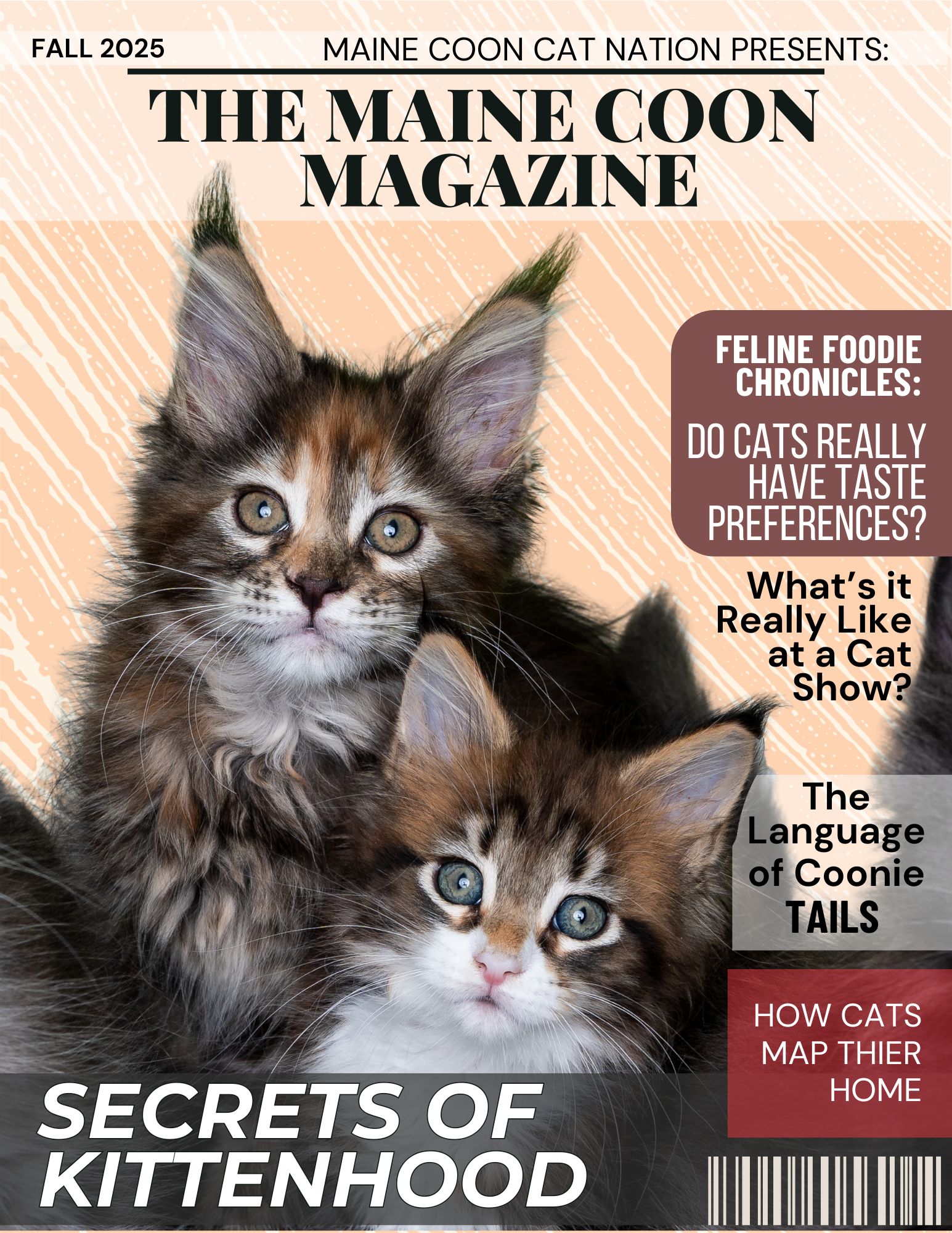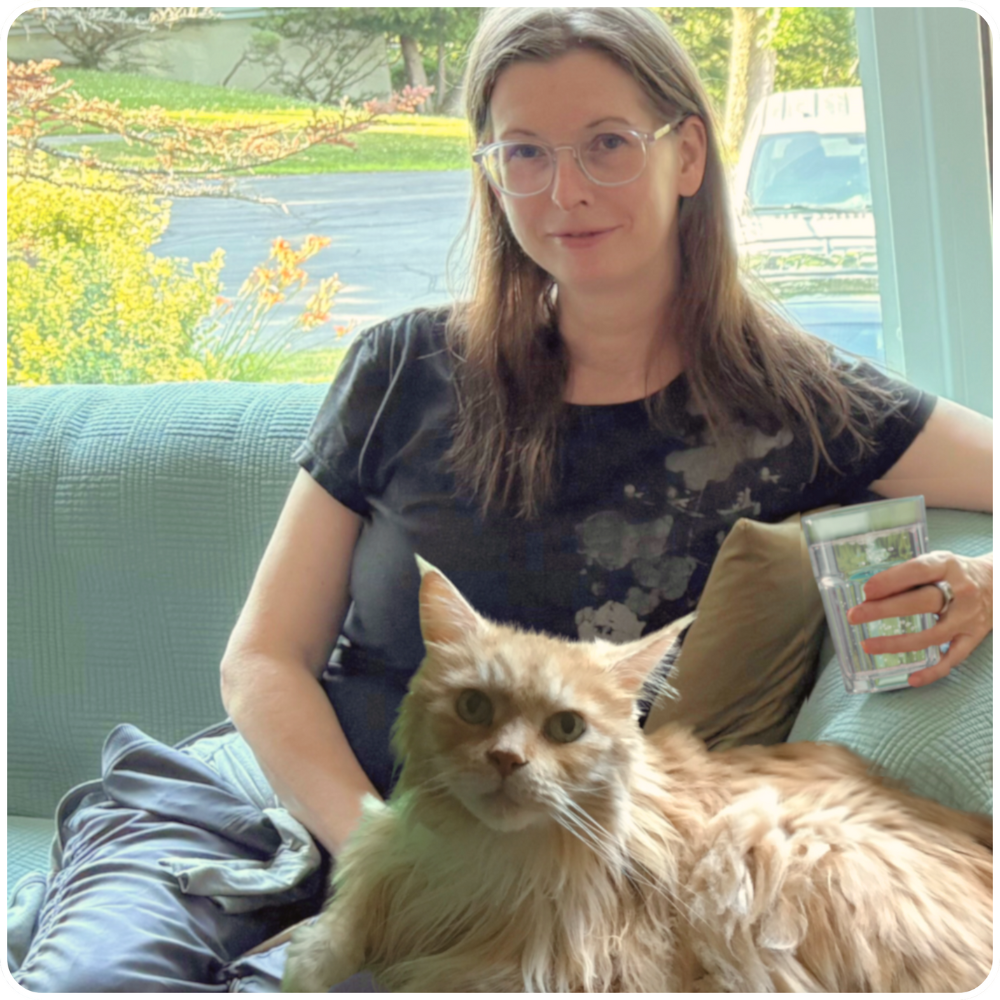- Home
- Maine Coon Cat Health
- Maine Coon Cat Health Problems
Maine Coon Cat Health Problems
The following Maine Coon cat health problems can affect any cat, of any breed. Maine Coons are hardy and robust cats, and you can expect yours to live a long and healthy life.
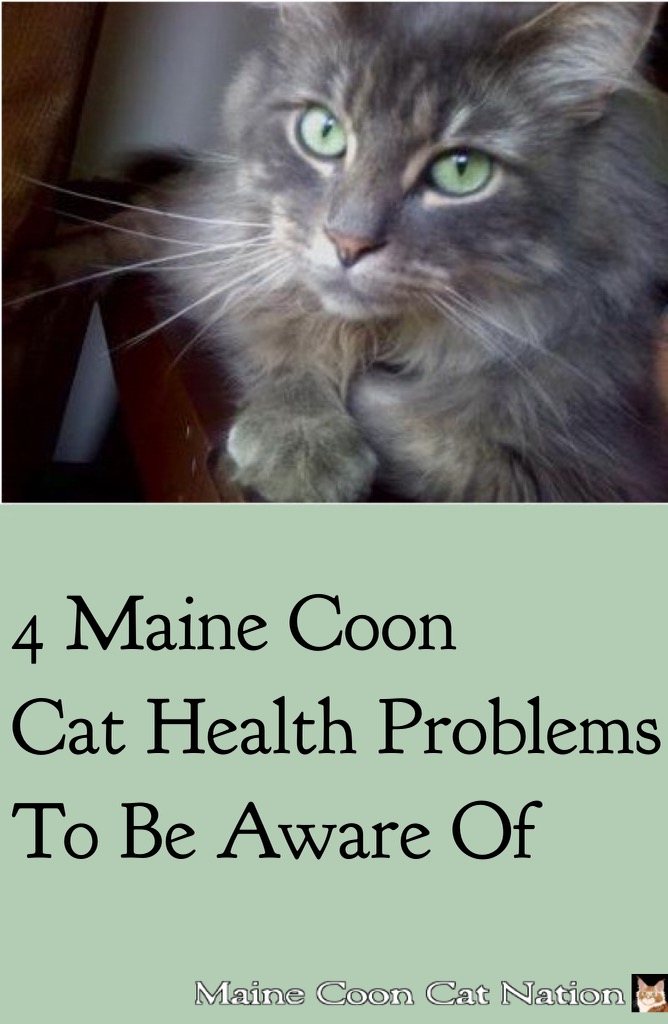
Any purebred pet will have certain conditions or issues that tend to appear statistically more often within the breed than in general. That's just how genetics works!
Since the following health issues can be genetically inherited by Maine Coon cats, it's good to be aware of them.
Being educated about them means knowing the signs and symptoms so you can spot any need to get veterinary help.
It also provides the peace of mind of knowing that these health issues aren't mysterious unknowns.
One reason you shouldn't have to worry too much is that responsible breeders will screen their breeding cats for inherited conditions.
Your breeder should be open to discussing any questions you may have about this genetic testing, about their practices, about their history of producing healthy kittens, and about their kitten health guarantee.
HCM - Hypertrophic Cardiomyopathy
This genetic disease is usually known as HCM. It is the most serious of the potential Maine Coon Cat Health Problems. HCM is the most common heart disease in all cats.
It is not specific to Maine Coons; It is seen in other cat breeds as well. It has been confirmed that the Maine Coon and the American Shorthair can carry the genetic trait for HCM.
HCM causes a thickening of the wall of the heart. This stiffens the walls of the heart, restricting blood flow. It occurs over time. It can lead to sudden heart failure, striking the cat at a young age.
Unfortunately, there are often no symptoms before this time. But possible symptoms could include:
- lethargy
- labored breathing
- weight loss
- lameness of a rear leg
- Your vet might detect a heart murmur or irregular heartbeat
Your vet has a variety of tests he can perform for diagnosis. The best thing you can do for your cat is to make it to the regular check-ups.
Your vet will be on the lookout for any signs or symptoms. If HCM is detected, talk to your vet about medications and prognosis.
Genetic Testing for HCM:
Ask your breeder about any testing they have done on their cats. They should be able to put your mind at ease.
The primary genetic test used for HCM in Maine Coons is for the MYBPC3 gene mutation, which has been associated with the disease in this breed.
The genetic test for MYBPC3 mutation is typically done through a DNA sample, often obtained via a cheek swab or blood sample. This test identifies whether the cat carries the mutation associated with HCM.
Breeders may also perform cardiac ultrasounds (echocardiograms) on their breeding cats to evaluate heart structure and function.
While this doesn't directly detect the genetic mutation, it can help identify cats with heart abnormalities that may be indicative of HCM.
Maine Coon breeders utilize both genetic testing and cardiac screening to help reduce the risk of passing on HCM to future generations and to ensure the health of their breeding lines.
Breeders may also work with veterinarians who specialize in feline cardiology.
Maine Coons & Heart Murmurs
The idea of your beloved buddy having a murmur can be scary - but many cats live full, happy lives with proper care. Oliver, a senior Maine Coon mix with a heart murmur, is a perfect example.
Spinal Muscular Atrophy
When researching Maine Coon cat health problems, you may come across Spinal Muscular Atrophy, or SMA. This is also a genetically inherited disorder.
It shows up in kittens, characterized by lameness in their rear end. This is caused by death of the spinal cord neurons.
The kitten is otherwise normal. It doesn't affect appetite, or use of the litter box. The cat can live years, comfortably, with SMA.
They won't run and jump as well as other cats, and if you feel the rear legs and hindquarters you can feel the loss of muscle tone.
Tests for SMA:
There is testing available to breeders, so they can avoid breeding any cats who are carriers.
The genetic test for SMA in Maine Coons identifies the presence of the mutation associated with the disease. This test is typically performed using a DNA sample obtained through a cheek swab or blood sample.
By testing breeding cats for the SMA mutation, breeders can identify carriers of the disease and make informed decisions about breeding pairs to avoid producing affected kittens.

Polycystic Kidney Disease
This is also genetically inherited. PKD is also known to affect Persian and Persian-related cats. The cat has multiple cysts on its kidneys.
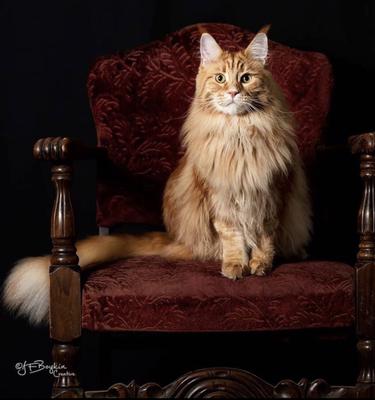
They grow in number and size as the cat ages, ultimately ending in renal, or kidney failure. The rate of cyst growth can be slower in some cats, but it remains a fatal condition.
Signs to look out for include depression, weight loss, increased thirst and urination, and occasional vomiting. Treatments are the same as for other cats with chronic kidney failure.
PKD is one of the more serious Maine Coon cat health problems, so be sure to ask your breeder about it.
Screening Measures for PKD:
Some of the ways breeders reduce the risk of producing kittens with PKD and maintain the health of their breeding lines include:
- Genetic Testing: Breeders can test their breeding cats for the PKD gene mutation. The most common gene associated with PKD in Maine Coons is the PKD1 gene. Genetic testing is usually done through a DNA sample obtained from a cheek swab or blood sample. This helps identify carriers of the PKD mutation.
- Ultrasound Screening: Breeders may also perform regular ultrasound screenings on their breeding cats. Ultrasound can detect the presence of cysts in the kidneys, which are characteristic of PKD. While ultrasound screening doesn't detect the genetic mutation itself, it can identify cats with kidney abnormalities indicative of PKD
- Pedigree Analysis: Tracking the pedigree of breeding cats can provide insights into the likelihood of carrying the PKD gene. If there is a history of PKD in a cat's lineage, breeders may exercise caution in breeding that cat or may opt for genetic testing to confirm its status
- Collaboration with Veterinary Specialists: Working closely with veterinarians who specialize in feline genetics and kidney diseases can provide valuable guidance for breeders. These specialists can offer advice on genetic testing protocols, interpreting test results, and managing PKD within breeding programs.
As you can see, regular testing and screening, along with responsible breeding practices, are key measures for minimizing the prevalence of PKD in Maine Coon populations.
Hip Dysplasia in Cats
Another inherited condition, Hip Dysplasia, is more prominent in large cats such as the big Maine Coon cat. A kitten inherits the genetic predisposition for it, and as the cat grows in weight in size, it becomes apparent.
It affects the hip joint, which is unable to properly bear the weight. Cartilage can disintegrate, causing arthritis and pain.
This is a condition that can be managed, and some folks opt to use herbal remedies for cats to help with hip dysplasia and other health issues.
Measures to Avoid Breeding Kittens with Hip Dysplasia:
Breeders take several measures to reduce the risk of producing kittens with hip dysplasia.
While hip dysplasia is more commonly associated with large dog breeds, it can still occur in Maine Coon cats. Here's how breeders typically address this concern:
- Screening of Breeding Cats: Before using cats for breeding, reputable Maine Coon breeders often have their breeding cats evaluated for hip dysplasia. This evaluation may involve X-rays of the hips to assess the joint structure and detect any abnormalities indicative of dysplasia. Cats with signs of hip dysplasia may be excluded from breeding programs.
- Selection of Breeding Stock: Breeders may prioritize selecting breeding cats with good hip scores and a history of healthy hips in their lineage. This can help reduce the likelihood of passing on genes associated with hip dysplasia to offspring.
- Genetic Testing: While hip dysplasia is influenced by both genetic and environmental factors, genetic predisposition plays a role. Although there isn't a specific genetic test for hip dysplasia in cats like there is for some other conditions, breeders may still consider genetic factors when selecting breeding pairs. They may avoid breeding cats with a family history of hip dysplasia or other musculoskeletal issues.
- Nutrition and Environment: Providing proper nutrition and a conducive environment for kittens' growth and development can also play a role in preventing hip dysplasia. Breeders ensure that kittens receive balanced diets and appropriate exercise to support healthy skeletal development.
- Collaboration with Veterinary Professionals: Maine Coon breeders often work closely with veterinarians who specialize in orthopedics and feline health. These professionals can provide guidance on screening protocols, interpretation of X-ray results, and overall management of hip health in breeding programs.
These measures help minimize the incidence of hip dysplasia in kittens and promote overall musculoskeletal health within the breed.
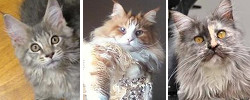
When you are choosing a kitten, it is important to ask your breeder what health screening they do.
A good breeder will promptly fill you in on all of these Maine Coon cat health problems. They'll provide you with information on current medical research.
They will let you know what genetic testing they provide for their cats, and how the parents of their kittens have tested.
When caring for your Maine Coon Cat, you should be aware of potential concerns. You know your cat better than anyone else, so you'll be the first to notice a change in behavior.
🖨️ Download this page: Maine Coon Cat health is an important topic; we've added it to the Download Center in our Member's Area. If this article is something you'd like to save to read offline, print, or just keep, check it out!
Worrying About Maine Coon Cat Health Problems:
These Maine Coon cat health problems are definitely serious, but by having a trusting relationship with your breeder and with regular veterinary care, you'll be able to rest easy.
The Maine Coon Cat breed is, generally speaking, a hearty, healthy and robust breed of cat!
Top of Maine Coon Cat Health Problems
« Back to Maine Coon Health
